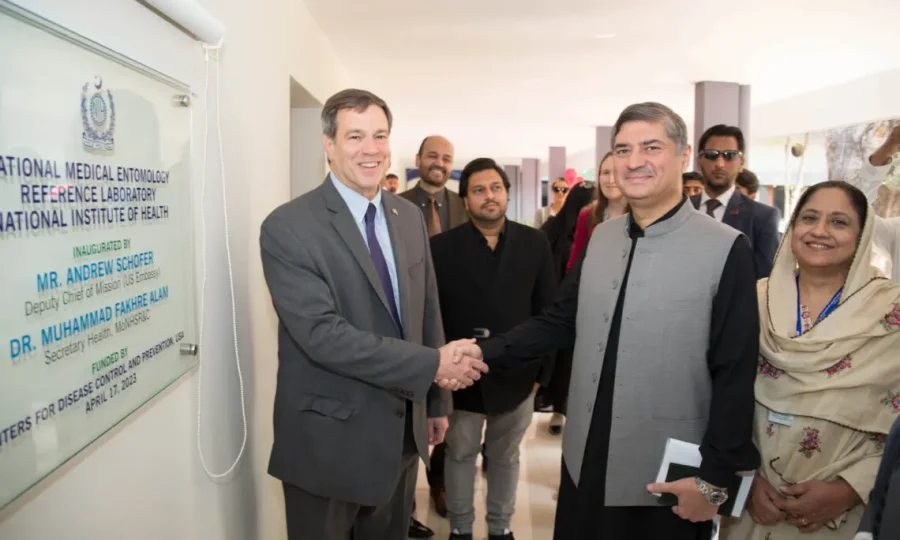US Embassy Deputy Chief of Mission Andrew Schofer inaugurated a new entomology laboratory in Pakistan that has been funded by the Centers for Disease Control and Prevention (CDC).
This new laboratory will help to strengthen Pakistan’s ability to track and respond to vector-borne disease outbreaks, which have been a serious health risk in the country.
The inauguration ceremony was attended by Federal Secretary at the Ministry of National Health Services, Regulation, and Coordination Dr. Muhammad Fakhre Alam Irfan and National Institute of Health (NIH) Chief Executive Officer (CEO) Ghazal Parveen Schofer.
They both highlighted the importance of this laboratory for Pakistan’s health sector.
According to a press statement, Schofer said: “The devastating 2022 floods across Pakistan reminded us all of the health risks posed by waterborne diseases. The United States stands with Pakistan as it continues to recover from the floods.”The US has been supporting Pakistan’s health sector for decades, and this laboratory is just the latest milestone in their partnership. In addition to this, after both the 2010 and the 2022 floods, the CDC experts travelled to Pakistan to consult with Pakistani and UN partners about how to effectively respond to the health crises stemming from the flooding.
Furthermore, the US and Pakistan have been working together to combat the COVID-19 pandemic, with the US supplying over 80 million doses of safe and effective COVID vaccines to Pakistan.
Additionally, the Agency for International Development (USAID) has built clinics and hospitals across Pakistan, expanding access to quality health care. For example, the Jacobabad Institute of Medical Sciences, built by USAID, remained open during the 2022 floods, providing necessary medical care to flood-affected individuals.The US will continue to build a strong health and science partnership with Pakistan, including through the US-Pakistan Green Alliance framework. This partnership will further strengthen Pakistan’s health sector and help the country respond more effectively to future health crises.










